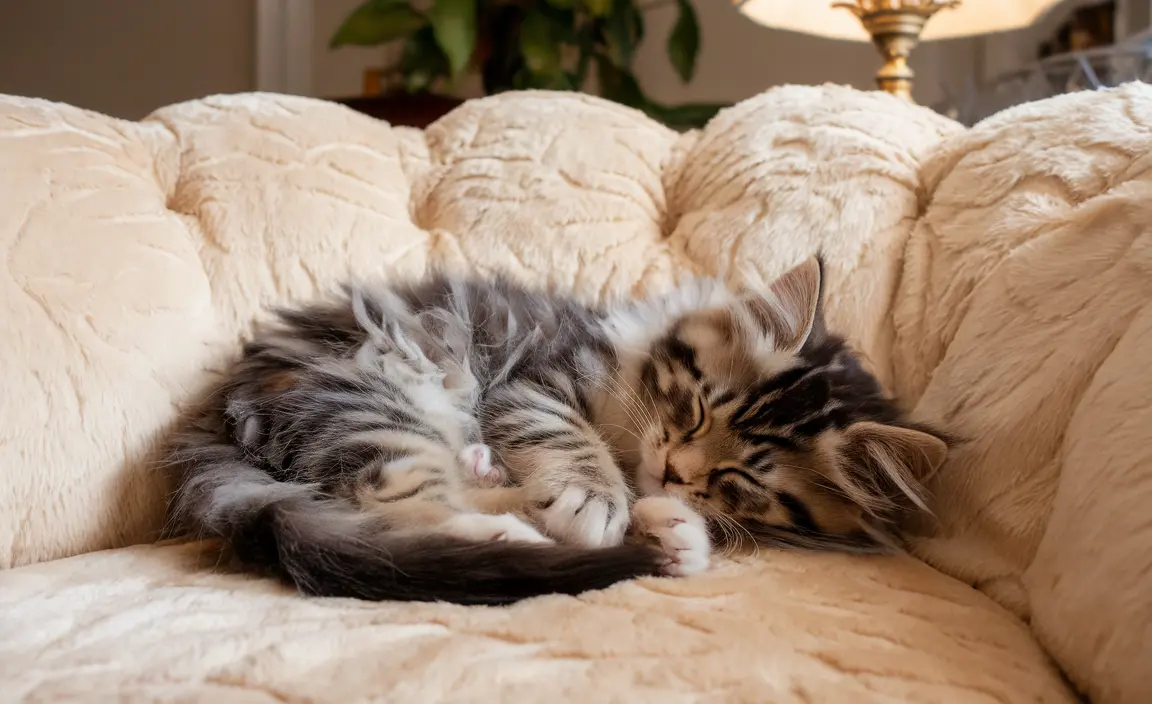Have you ever wondered why your adorable new kitten seems to spend most of their time dozing? Rest assured, extensive sleeping is completely normal for young felines. In fact, kittens can sleep up to 22 hours a day, a crucial part of their growth and development process.
Understanding your kitten's sleep patterns can help you ensure they're healthy, happy, and developing normally. Let's dive into the fascinating world of kitten sleep and what makes these tiny furballs such champion nappers.
Why Do Kittens Sleep So Much?
Kitten sleeping all day might seem excessive to humans, but it's a natural and essential part of their early life. Sleep plays a critical role in a kitten's physical and mental development. During these extended rest periods, kittens are actually working hard to grow, strengthen their immune system, and prepare for active moments.
Energy Conservation and Growth
Just like tiny predators in training, kittens conserve energy through extensive sleep. These long naps help them store energy for short, intense bursts of playfulness. Their bodies are rapidly developing, and sleep provides the necessary time for muscle growth, bone strengthening, and overall physical development.
Normal Sleeping Patterns by Age
Newborn to Two Months
Newborn kittens are professional sleepers, typically snoozing around 22 hours per day. As they grow, their sleep patterns gradually change:
- Newborns (up to 2 weeks): Approximately 22 hours of sleep daily
- 3 weeks to 2 months: About 20 hours of sleep per day
- 3 months and older: Around 18 hours of sleep daily
Developmental Changes in Sleep
As kittens mature, their sleep becomes less fragmented. You'll notice they start to develop more consistent sleep-wake cycles, similar to adult cats. This transition is a normal part of their growth and doesn't happen overnight.
When to Be Concerned About Kitten Sleep
While extensive sleep is normal, there are a few signs that might indicate a potential health issue:
- Extreme exhaustion after waking
- Disorientation
- Complete disinterest in food
- Sudden changes in sleeping patterns
- Persistent lethargy accompanied by other symptoms
Monitoring Your Kitten's Health
If you notice any of these signs, it's best to consult with a veterinarian. While most sleep patterns are normal, professional guidance can help rule out any underlying health concerns.
Interesting Kitten Sleep Behaviors
During their sleep, kittens might exhibit fascinating behaviors like twitching or slight movements. These are typically signs of healthy REM (Rapid Eye Movement) sleep and indicate normal brain development.
Frequently Asked Questions
Is it normal for kittens to sleep up to 22 hours a day?
Yes, extensive sleep is completely normal for kittens, especially in their first few weeks of life. This sleep is crucial for their growth and development.
Why do kittens sleep so much?
Kittens sleep to conserve energy, support physical growth, strengthen their immune system, and prepare for short bursts of playful activity.
How do a kitten's sleeping patterns change as they grow older?
As kittens age, their total sleep time gradually decreases from 22 hours to around 18 hours. Their sleep also becomes less fragmented and more similar to adult cat sleep patterns.
When should I be concerned if my kitten is sleeping too much?
Be concerned if your kitten shows signs of extreme exhaustion, disorientation, complete disinterest in food, or persistent lethargy accompanied by other unusual symptoms.
What behaviors during kitten sleep indicate healthy brain development?
Twitching, slight movements, and active REM sleep are normal indicators of healthy brain development in kittens.






